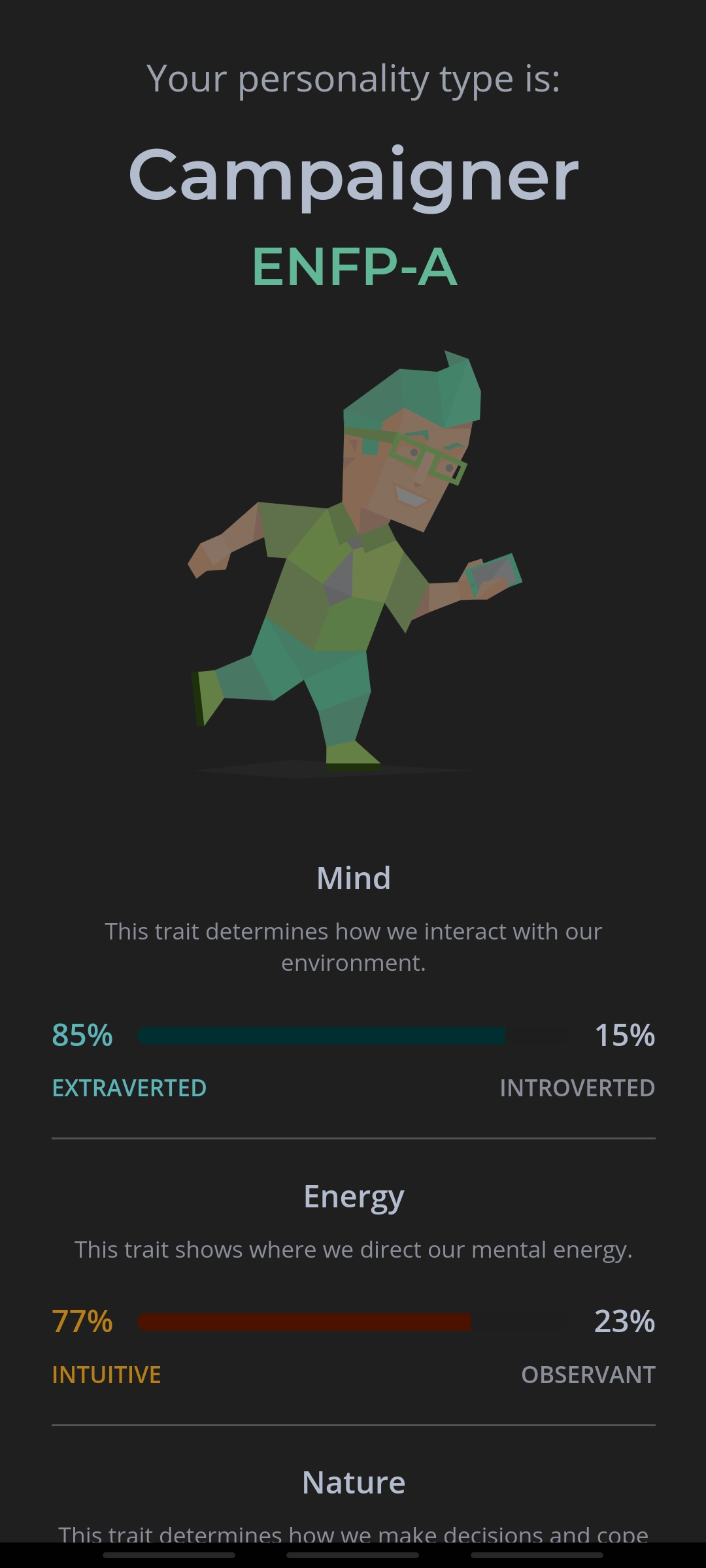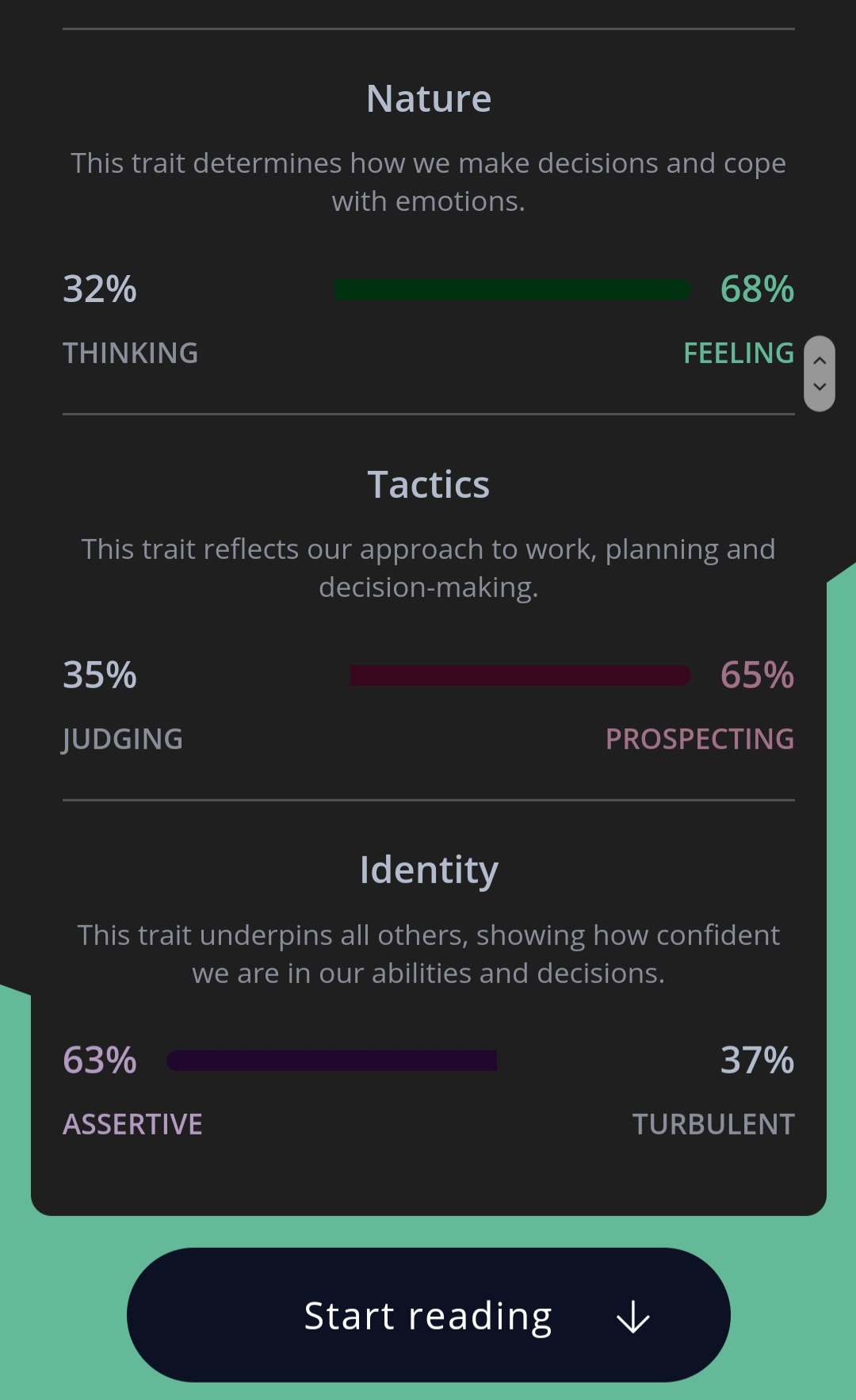What is your personality type according to this personality test?
Free personality test | 16Personalities
These are my results:

I am an INFJ
Welcome to Religious Forums, a friendly forum to discuss all religions in a friendly surrounding.
Your voice is missing! You will need to register to get access to the following site features:We hope to see you as a part of our community soon!
What is your personality type according to this personality test?
Free personality test | 16Personalities
These are my results:

The Big 5 test is a lot better: Big Five Personality TestAn article I found:
Why the Myers-Briggs test is totally meaningless
That being said I'll take it now and see what I get
Let me take it give me a secThe Big 5 test is a lot better: Big Five Personality Test
In the Jungian Cognitive function system, Feeling does not equate to emotion.You and I are pretty much evenly split on feeling/thinking, having scored the same score in that category. I think at times I can be an INTJ and others I can be an INFJ.
INTP this time. I tend to switch between INTP and INTJ.What is your personality type according to this personality test?
Free personality test | 16Personalities
These are my results:


Sometimes I question the validity of those tests when I realize with whom I get put into a category ... ( ;-) )
Are we sharing a brain?Sometimes I question the validity of those tests when I realize with whom I get put into a category ... ( ;-) )
Yup. It really is a shame people put so much stock and focus into total rubbish.An article I found:
Why the Myers-Briggs test is totally meaningless
That being said I'll take it now and see what I get
What is your personality type according to this personality test?
Free personality test | 16Personalities
These are my results:


I'm OK with sharing my opinions but I'd like to keep my brain for myself (as long as it's working).Are we sharing a brain?
My result on that one:

Here are my Big 5 results from this test:
View attachment 48079
My results!

am I the only one thats emotionally unstable? I scored a 3.Thanks for this!
View attachment 48082
